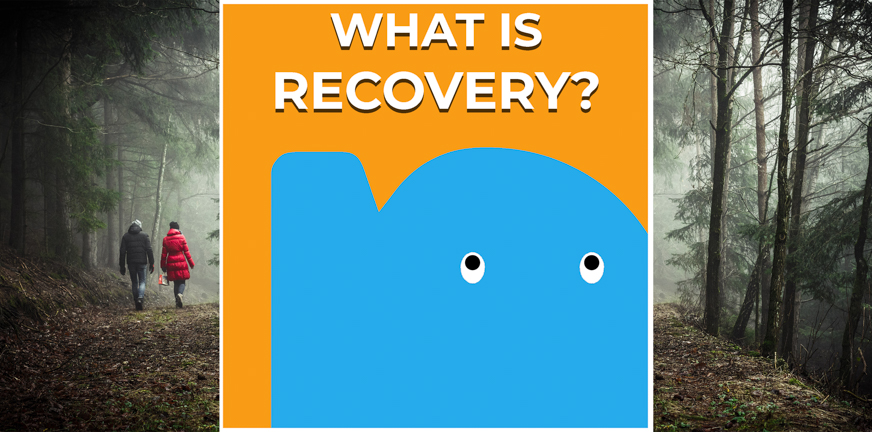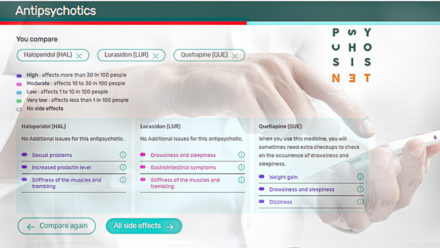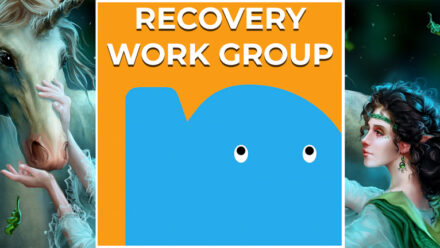
Going through psychosis is a complicated experience. And so is recovering from it. There is always a future after a psychotic episode, because people can recover from psychotic episodes. But what does that mean exactly, “recover”?
Health and recovery
The Dutch physician and researcher Machteld Huber developed a new and increasingly influential definition of health, which reads:
“Health as the ability to adapt and self-manage, in light of the physical, emotional and social challenges of life.”
This new definition is a lot more about dealing with physical and mental challenges/illnesses and empowerment than the old definition, which focused more on ‘the absence of disease’. And that also is what recovering from psychosis is about: to regain and lead a meaningful life, despite your mental vulnerability.
What is recovery?
Recovering a lost password is straightforward. Answer your security questions and you are good to go. But when we are talking about recovery from psychosis, depression, mania or some other mental illness, recovering from such a psychological vulnerability means a whole lot more. William Anthony, director of the Psychiatric Rehabilitation Center in Boston (USA) describes it as follows:
“Recovery is a deeply personal, unique process of changing one’s attitudes, values, feelings, goals, skills and/or roles. It is a way of living a satisfying, hopeful, and contributing life even with limitations caused by the illness. Recovery involves the development of new meaning and purpose in one’s life as one grows beyond the catastrophic effects of mental illness.”
Personal and social recovery
The first thing you recover from is the immediate situation that happened to you. This is called “personal recovery”. During and after the course of the illness you may have lost a number of roles or positions that were important for you in life. For instance, you have probably been temporarily unable to work or go to school. You then try to strike a new balance between your capabilities and your challenges. Living your life again, returning to social roles, rediscovering your balance and being part of society again, is called “social recovery”.
Stigma and recovery
Becoming a normal part of society again is not all that simple, because recovery from a psychological condition is difficult to understand for a lot of people. This stigma, and the self-image of “being crazy”, can get in the way of personal and social recovery. Good luck finding a job when your CV says that you have been depressed for five years. In short: someone who wants to return as a full member of society, should also get the opportunity and understanding to succeed in this.
Recovery and empowerment
The process of recovery is uniquely personal, because we all make different choices and call on different personal resources for help. We all go through different events in life. We make our own choices in life, and some choices are made for us. We do things on our own, and sometimes we need help.
How and when someone wants to recover, and from what, is all up to the individual. This is called “self-management” or empowerment. This can be quite a difficult goal at times. Because empowerment does not mean that everyone should turn a blind eye or just let things run their course. And telling a patient they have to fix themselves, when all required care has already been organised and put in place, also is not exactly empowering. It gets more complicated after it was simply necessary to take over control of someone’s life. Sometimes there is no other choice than to give back control as much as possible again. This too is part of recovery.
Experience workers as “recovery professionals”
The number of lived experience jobs within and outside mental health care is increasing. In these jobs, the concept of recovery plays a major role. People with lived experience, through their own story of recovery, show the way towards recovery for others.
Practical support with recovery
There are lots of options for people who want to work on their own recovery. There are task forces such as “Working with lived experience” and WRAP. You can also turn to recovery centres or recovery support groups. Besides these actual places, there is also the digital world with apps that can contribute to your recovery process, a relapse prevention plan and the alert plan are valuable tools and there are massive amounts of material on the internet, such as hopeful and inspiring stories of recovery on this site and other sites.




